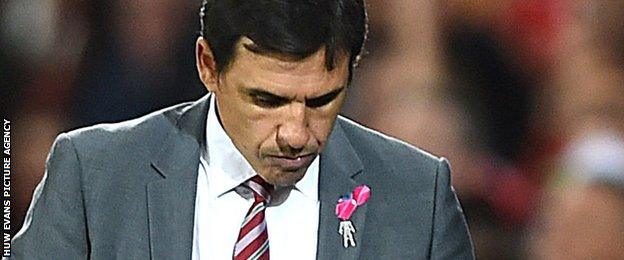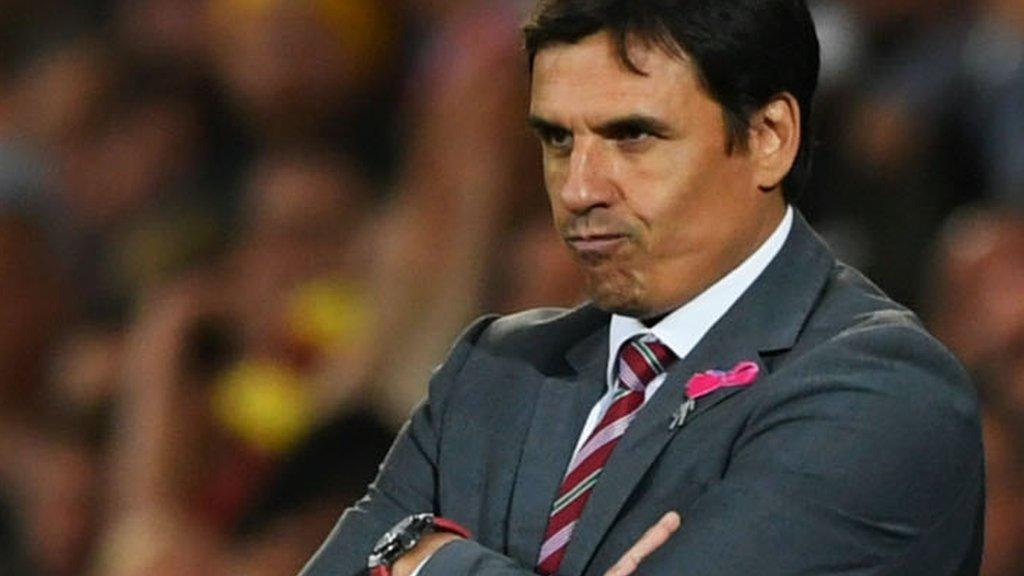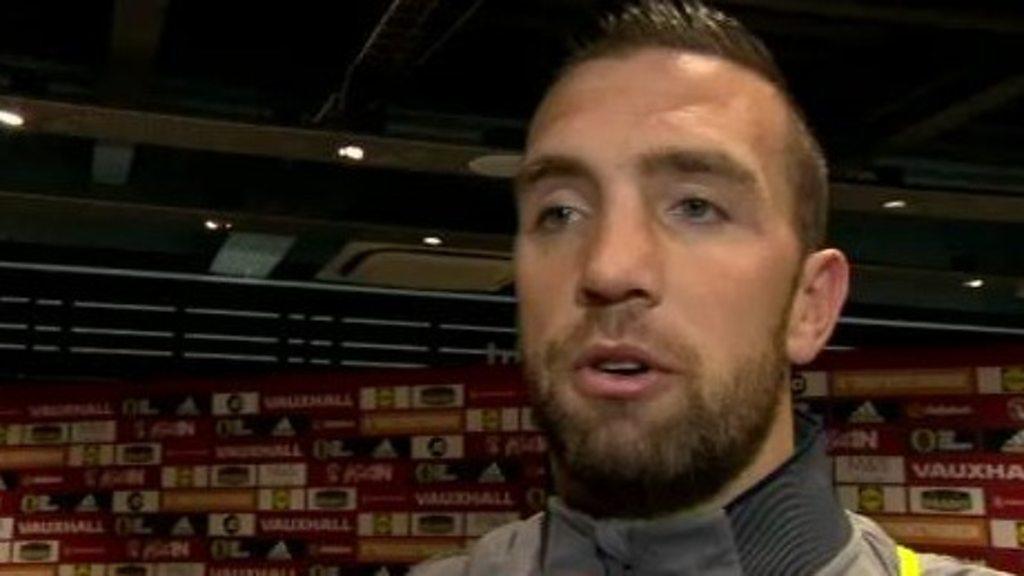Wales fail to qualify for 2018 World Cup: What next for Chris Coleman's side?
- Published
- comments
Heartbreak for Wales - where did it all go wrong?
Wales' hopes of qualifying for the 2018 World Cup were shattered by Monday's defeat at home to the Republic of Ireland, and the end of the campaign raised several questions about the future of Welsh football.
It posed questions about why Wales fell short, cast doubt over the future of manager Chris Coleman but also presented reasons to be optimistic with the emergence of a new generation of young players.
What went wrong?
Having scaled new heights with their historic run to the Euro 2016 semi-finals, Wales started this campaign with the unfamiliar status of being favourites.
They were among the top seeds and, although Group D always had the potential to be one of the tightest and most competitive in Europe, it did present Wales with a fine opportunity to qualify for a first World Cup since 1958.
Austria represented a favourable draw as second seeds, even if Serbia and the Republic of Ireland were two of the more difficult teams you could wish to face as third and fourth seeds.
Having revelled in their standing as underdogs in France last summer, Wales were now seen as a scalp for other sides and they had to contend with increased expectations.
Teams sat back and defended deep to negate the pace of Gareth Bale-led counter-attacks, while they also crowded the midfield to stifle the creativity of Aaron Ramsey and Joe Allen.
Wales struggled to overcome such tactics, with home draws against Georgia and Serbia - as well as a failure to score a single goal in two games against the Republic of Ireland - proving costly.
Coleman's side drew half of their games, squandering the lead in four of those five fixtures and leaving themselves with too much work to do in the closing stages of the campaign.
"I look at it and think if we can't qualify then we've come up short," said Coleman.
"I thanked my players for their work, for their passion, for making the nation proud again. We just didn't have enough in that last push.
"I'm super proud of the players. It's been a privilege to work with these players. I can feel how much they're hurting and it's not nice, but I told them: 'Stick your chest out.' They should be proud of themselves.
"I'm absolutely gutted we haven't made it, absolutely devastated, but it's not my first disappointment in life and probably won't be my last."
Wales' next generation

Ben Woodburn emulated his manager Chris Coleman by scoring on his senior Wales debut
As Coleman spoke in the immediate aftermath of Monday's home defeat by the Republic of Ireland, the disappointment was etched on his face and detectable in his uncharacteristically hushed tones.
However, he was eager to point out how Wales' players - and particularly the younger members of the squad - would be stronger for this experience.
Although it ultimately ended in failure, Wales' World Cup qualifying campaign saw the emergence of several young prospects.
Ben Woodburn, Liverpool's 17-year-old forward, announced his arrival in spectacular fashion, scoring a brilliant winning goal against Austria just four minutes after coming on for his senior debut.
Two games later, with Wales needing victory in Georgia to keep their qualification hopes alive, Derby's Tom Lawrence struck his first international goal to cap a fine individual display in only his third competitive start for his country.
This campaign has also included first senior call-ups for Chelsea's 17-year-old defender Ethan Ampadu and Sheffield United's 20-year-old attacking midfielder David Brooks, both of whom could be in contention to make their debuts if Wales are in friendly action in November.
Their rise is timely, given the fact captain Ashley Williams is 33 and, by the 2022 World Cup in Qatar, Bale will be 33, Ramsey 31 and Allen 32.
Wales' assistant manager Osian Roberts, who is also the Football Association of Wales' technical director, has played a prominent role in the development of the country's younger players.
"This is not the end of an era for Wales because these players are going to go on to achieve more and play at more tournaments," he told BBC Sport Wales.
"Not only have we done well and competed in this group, we've freshened up the squad and the average age is getting lower and lower.
"The future is bright as far as we're concerned and the Welsh supporters should stay in good heart because there's more to come from this group."
What next for Coleman?

Chris Coleman succeeded Gary Speed as Wales manager in 2012
In the afterglow of last summer's historic run to the Euro 2016 semi-finals, Coleman said this campaign would be his last in charge of Wales.
As time wore on and Wales' chances of qualifying for the World Cup wavered, the 47-year-old was asked if he regretted the timing of his comment but maintained he would only consider his future once the campaign had finished.
Coleman will now take time off and "let the dust settle" before deciding whether or not to extend his contract, which expires at the end of the World Cup.
The players certainly hope he will sign a new deal, and they met Coleman after the defeat against the Republic of Ireland to urge him to stay.
"I think everyone in Wales - fans, players, staff - we 100% want him to stay on," said defender Chris Gunter.
"He's been a massive part of what we've done and he is the man to take us forward hopefully.
"If the powers that be can give him a really good contract to make him stay, he can carry on being the greatest Wales manager of all time."
- Published10 October 2017

- Published10 October 2017

- Published10 October 2017
